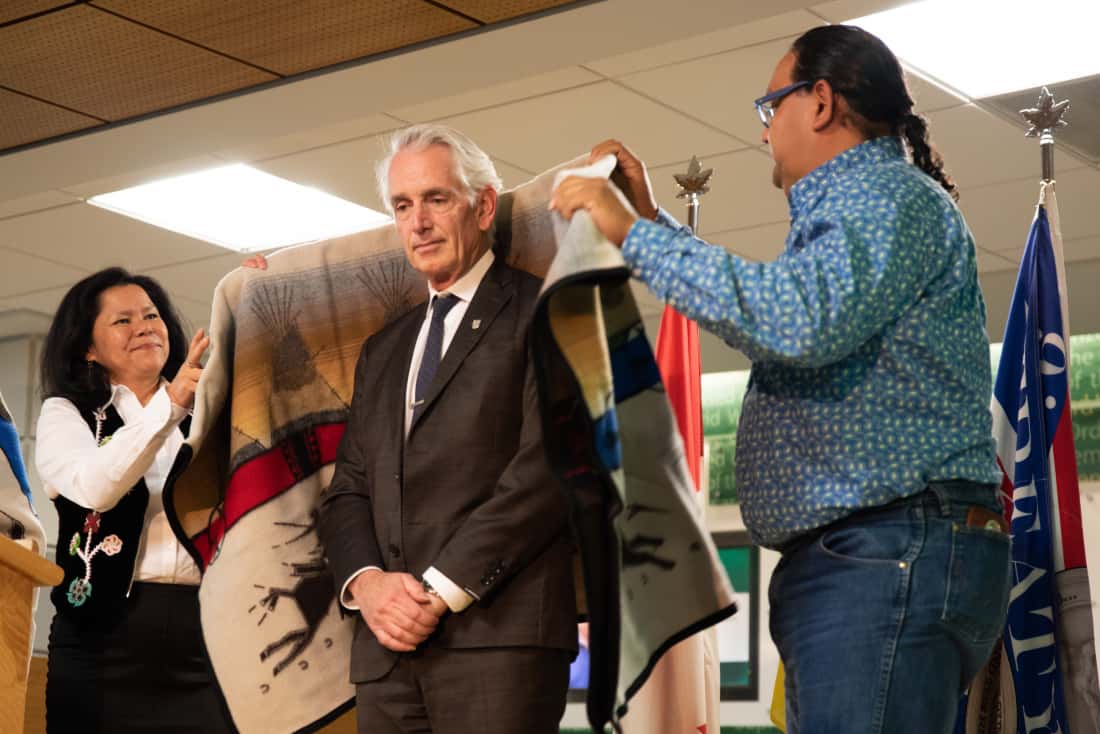
Peter Stoicheff came into his position as University of Saskatchewan president in 2015, a year that saw big provincial cuts to post-secondary funding. Five years later, Stoicheff looks at his second term with optimism, saying that the university has now overcome this difficult time.
Stoicheff first indicated his willingness to serve a second term in October 2019. The Board of Governors unanimously approved his reappointment in December 2019. Stoicheff is now slated to serve as the U of S president for five more years.
He is only the second president in the university’s history to hold the position for this long. His first term was a period of financial instability for the U of S, with persistent funding cuts from the province. However, this has also been a time of growth for the university.
Stoicheff says that the U of S has accomplished many things in recent years to overcome those challenges and that now the university is in good shape to achieve its potential.
“I think we’ve really hit our stride,” Stoicheff said. “I came in when the university was experiencing a difficult time. And I do feel good that the university has been able over the last four and a half years … to move away from all of the challenges that it was facing immediately before that.”
When thinking about his first term, an accomplishment that stands out to Stoicheff is the U of S’s growing global recognition as a quality research institution.
“We have become recognized across the country, and in select ways around the world, as a research powerhouse,” Stoicheff said. “The university tended to pass a little below the radar — it deserved to be way above the radar — for a lot of these things. And now it’s really recognized.”
Stoicheff also highlights the university’s increased focus on Indigenous peoples. When Stoicheff first came into office, he established Indigenization as the main focus of his presidency. Since then, the university has increased numbers in Indigenous students and faculty, and the University Plan 2025 puts Indigenization as a collective goal of the institution.
“We have really come together as a university around the imperative and priority of being the right place with and for Indigenous students and their communities,” Stoicheff said. “It’s not enough — I never want that to be inferred from what I’m saying — but it certainly wasn’t enough before and we’re moving in the right direction.”
Before Stoicheff was approved for a second term, a Presidential Review was conducted to collect feedback about him from the community. According to Stoicheff, a good portion of the feedback he received was on the topic of the university’s Indigenization, among other priorities he has identified during his term.
“I think the majority of the feedback that I got … had to do with not wavering at all on the Indigenous work that we’re doing and moving more aggressively on Sustainable Development Goals and in the Equity, Diversity and Inclusion direction,” Stoicheff said.
Stoicheff’s second term officially starts in July. Thinking about the next five years, he says that a priority of the university will be to be “outward-facing” and to respond with innovative programming and research to issues worldwide.
“‘The university the world needs’ is not a boast, it’s a challenge to ourselves,” Stoicheff said. “That outward-facing spirit is the real foundation of my term.”
—
Photo: File/ J.C. Balicanta Narag
Ana Cristina Camacho/ News Editor